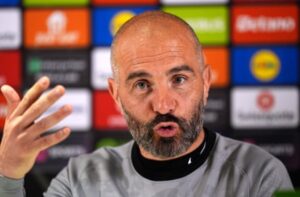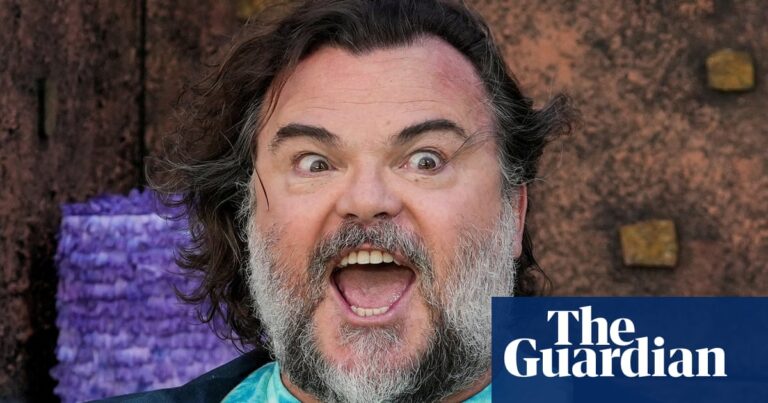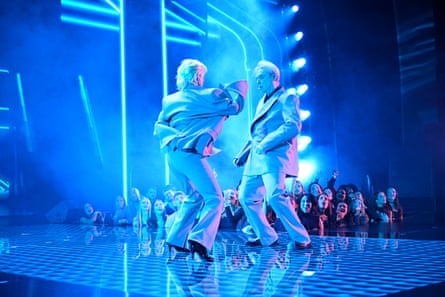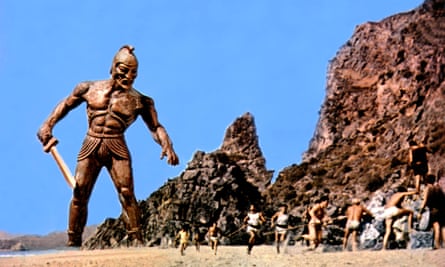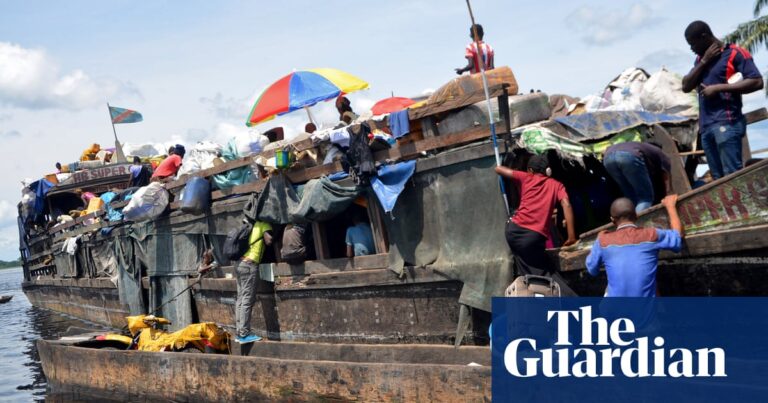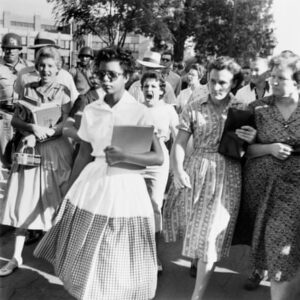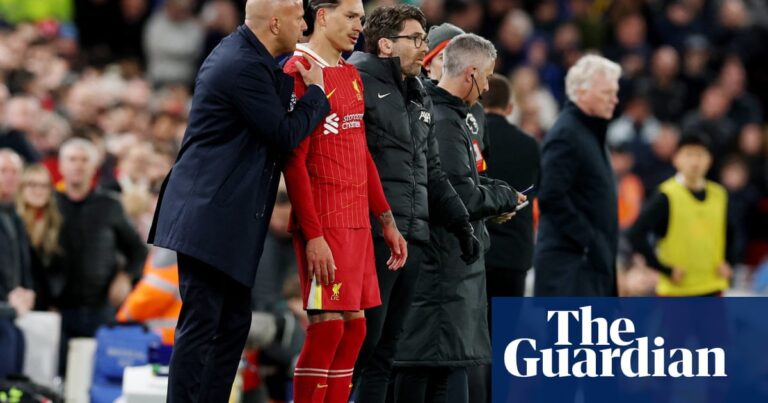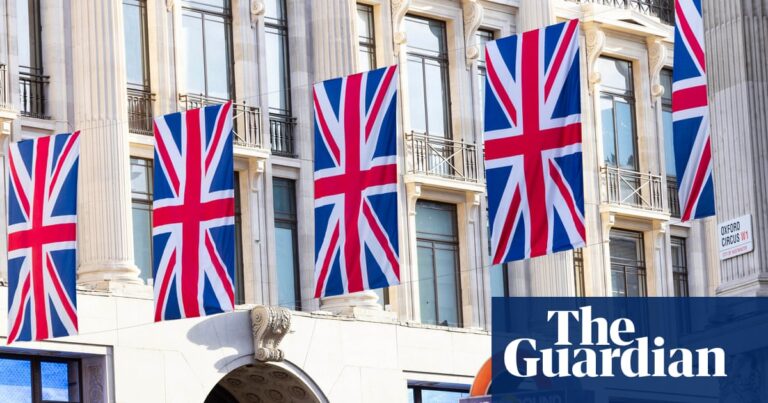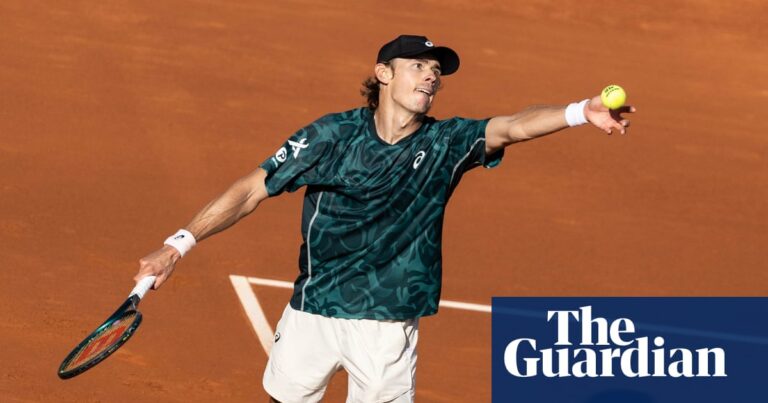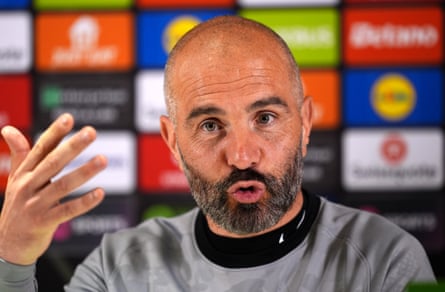
Britain’s Eurovision competitor Olly Alexander and several other entrants have rejected calls to boycott this year’s Eurovision song contest owing to its inclusion of Israel among the competitors, stating their belief in “the unifying power of music, enabling people to transcend differences and foster meaningful conversations and connections”.
Maxine Peake and the author Sarah Schulman were among a list of more than 450 queer artists, individuals and organisations who signed an open letter as Queers for Palestine calling on Alexander – the former Years and Years singer and star of Channel 4’s It’s a Sin – to pull out of the contest in solidarity with Palestine.
The letter, posted on Instagram by Queers for Palestine, read: “We share the vision of queer joy and abundance you’ve offered through your music, and share your belief in collective liberation for all. In this spirit, we ask you to heed the Palestinian call to withdraw from Eurovision … There can be no party with a state committing apartheid and genocide. At a time when accountability is so urgently needed, Israel’s inclusion in Eurovision would enable and cover up its war crimes and crimes against humanity.”
Alexander posted his own response on Instagram – which he said he had also sent directly to Queers for Palestine – as well as signing a joint letter alongside other Eurovision competitors.
In his reponse he wrote: “I wholeheartedly support action being taken to demand an immediate and permanent ceasefire in Gaza, the return of all hostages and the safety and security of all civilians in Palestine and Israel.
“I know some people will choose to boycott this year’s Eurovision and I understand and respect their decision. As a participant I’ve taken a lot of time to deliberate over what to do and the options available to me. It is my current belief that removing myself from the contest wouldn’t bring us any closer to our shared goal.”
Instead, he wrote, he would collaborate with other Eurovision contestants on how to “use our platform to come together and call for peace”. He thanked Queers for Palestine and stated his hope “that we can continue to work together in creating a better world for all of us”.
The collective letter, signed by Alexander along with Ireland’s Bambie Thug, Norway’s Gåte, Portugal’s Iolanda, San Marino’s Megara, Switzerland’s Nemo, Denmark’s Saba, Lithuania’s Silvester Belt and Finland’s Windows95Man, began by acknowledging “the privilege” of taking part in Eurovision.
“In light of the current situation in the Occupied Palestinian Territories, and particularly in Gaza, we do not feel comfortable being silent. It is important to us to stand in solidarity with the oppressed and communicate our heartfelt wish for peace, an immediate and lasting ceasefire and the safe return of all hostages.”
The letter stated the signatories’ stance against “all forms of hate, including antisemitism and Islamophobia” and concluded: “We feel that it is our duty to create and uphold this space, with a strong hope that it will inspire greater compassion and empathy.”
The open letter calling on Alexander to boycott the competition drew support from the Palestinian Campaign for the Academic and Cultural Boycott of Israel – a founding member of the Palestinian-led boycott, divestment and sanctions movement. “This is the moment for Eurovision participants including Olly Alexander to make history, instead of letting it pass them by,” it said.
Alexander is set to compete with the song Dizzy, which peaked at No 42 on the UK singles chart.
The Eurovision grand final takes place on 11 May in Malmö, Sweden. More than 1,000 Swedish artists have called for Israel to be banned from participating and more than 1,400 Finnish music industry professionals signed a petition to ban Israel from taking part in the contest.
In 2022, Russia was banned from participating in Eurovision a day after the country invaded Ukraine. The European Broadcasting Union, which runs the event, said Russia’s participation would “bring the competition into disrepute”. The decision to let Israel compete has seen many accuse the organisers of double standards.
Source: theguardian.com







